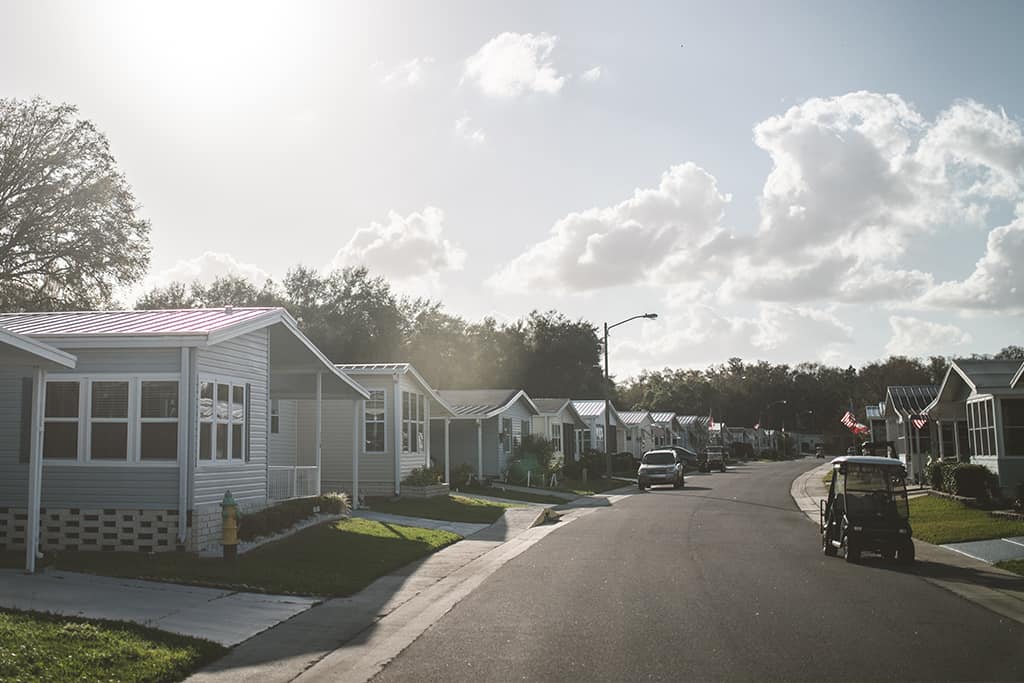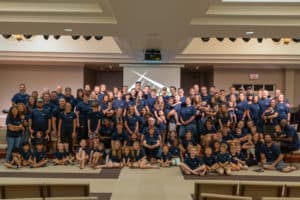3 Steps You Can Take to Engage Your Neighborhood with the Gospel
By: Daniel Carter
Our prayers had been answered! After a year of moving down to San Diego and praying about which neighborhood we wanted to move into, we finally moved into a place literally right across the street from a large military population in the heart of the city.
Dreams of grandeur enveloped my wife and I as we thought about all that God could do through us in the coming years. However, I remember that excitement being relatively short-lived in my heart as it did not take long with some hours of walking around our neighborhood for a new form of pride to set in. Fear started to grip me with this thought, “Who was I to come into such a large, needy neighborhood and what possible difference could we make?”
Well, thankfully a few years have passed since those fearful thoughts drenched in self-reliance dominated my thoughts. What has since occurred over those years has fallen far short of my dreams of grandeur but what God has done over three years of un-flashy neighborhood ministry has been amazing!
I hope to share with you insights gleaned over the years that can be transferable into any neighborhood. If the Lord can create a fruitful neighborhood ministry in San Diego where most neighbors prefer never to say hi to each other, I’m confident that God can create one through you anywhere else. So let’s begin with step 1:
Step 1: Slow Down
This would be the first thing I would have told myself three years ago trying to start a new church in the city. My schedule was fast-paced and I unintentionally wanted my ministry to be fast-paced. However, God’s pace is often much slower than our pace, especially when it comes to neighborhood ministry.
Think about it, if we’re always in a rush walking around our neighborhood and we’re never interruptible, how could we ever build meaningful relationships with neighbors and thus how could we ever see the gospel take root in our neighbors’ lives? God had to teach me to slow down. To slow down as I walked with my kids, to slow down as I walked to the mailbox, to slow down as I played at the park.
It was often in those unrushed moments when I would notice a sticker on a neighbor’s car that sparked conversation or let my daughter pet a neighborhood dog that allowed me to meet a new neighbor. Slowing down often aligns our hearts to see and notice the things God wants us to see around our neighborhood.
Step 2: Be Consistent
I’ve often found that I’m more reactive to ministry opportunities when I am already proactive about spending time in my neighborhood. For me, this looked like taking my kids on a walk at the same time every afternoon to the same park. From this, I started to see some of the same neighbors on their walks, the same neighbors who arrived home from work, and the same neighbors at the park.
Seek to be consistent in spending time in your neighborhood at the same hours doing the same things. This could look like walking your dog at the same time every day, taking your kids on a walk at the same time, or regularly going to the same park. To build relationships with neighbors, we need to be consistent.
Step 3: Have a Plan
As the Lord enabled me to slow down and stay consistent in my neighborhood walks, I ended up meeting and building relationships with a lot of neighbors. However, the next problem arose. How do I get from “nice to meet you” to sharing the gospel in a loving and genuine way?
Over the years, I’ve seen more and more the need to have a plan to progress conversations from topical to spiritual and from spiritual to gospel conversations. After two or three times of talking to a neighbor and starting to build trust, I’ll ask intentional questions like “How can I be praying for you?” This is a genuine question and we want genuine answers but often these answers give you further permission to talk about spiritual things and eventually have gospel conversations.
My hope and plan with my neighbors is to get our conversations closer and closer to Jesus every time I see them. So have a plan with progressing regular conversations to gospel conversations, but also have a plan to share the gospel. I’ve found that I need to be ready with a quick ten-second gospel presentation but there are also opportunities to share a more detailed five-minute conversational gospel presentation. We should have a plan to learn and utilize these types of gospel conversation tools.
Last, have a plan for what you can do next to continue to engage with your neighbor after a gospel conversation. I’ve found that one of the most effective ways to see neighbors come to Christ is to ask them to start meeting with me over coffee to read the Bible together. I’ll often take neighbors through the Gospel of Mark and over time, let the Spirit through the Word of God start to open their hearts more and more to the gospel.
These three steps are hopefully a simple way to get started with engaging your neighborhood with the gospel.
To close, let me encourage you in this way: Please don’t underestimate what God can do through quiet faithfulness. Only God knows where quiet faithfulness will lead and how the Lord will work. In our neighborhood, we have been blessed to meet many of our neighbors and to be in their lives when God was working in them. We’ve had countless gospel conversations, one at a time, built friendships with those open to it, and labored over many souls these last few years. We’re still learning how to engage our neighborhood and look forward to how the Lord will work in quiet faithfulness.


